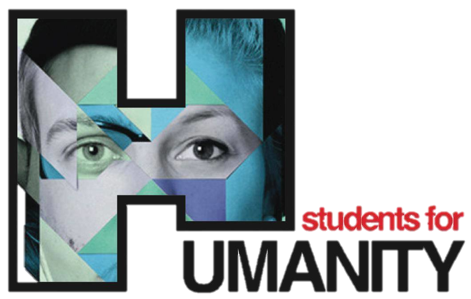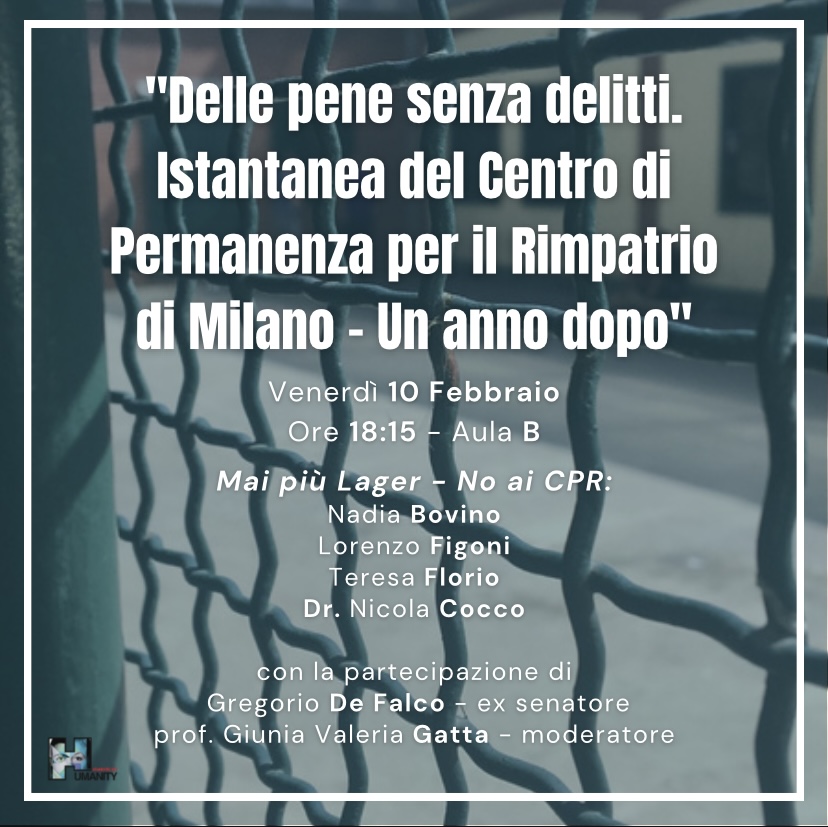SFH event: On punishments without crimes - a year later
The CPR (Centro di Permanenza per il Rimpatrio – Permanent Center for the Returns) is a structure that serves for the custody of foreign people, aimed at identification and possible subsequent expulsion. It is not a prison, people who stay there have committed no crimes. It is only a matter of administrative illicit, most frequently the missing of a residence permit. While it should be a temporary stay before being sent back to the home country, the slow bureaucracy results in hundreds of people entering the center and only a few tens succeeding in going out in the following months.
Most importantly, the extremely poor sanitary and human conditions in which people live inside the center are leading to an increasing number of tempted suicides. Gregorio de Falco, elected senator in 2018 and involved in CPR, following a visit to the CPR in via Corelli 28 (Milan) carried out on 29 May 2022, drafted the report “Delle pene senza delitti. Istantanea del CPR di Milano – Un anno dopo” (On punishments without crimes – a year later) to denounce how the miserable conditions in which it was found the year before had not changed. He denounced the place as a “free port of any right, even of constitutional law, from that of individual freedom, to that of defence, to that of asylum and the right to health itself” and “a structure where humanity has been forgotten”. Also the lawyer Nicola Datena described it as a “total limitation of the right to personal freedom implemented through highly discretionary administrative practices and of dubious compatibility with the constitutional order […] The system of administrative detention and forced return deserves to be radically questioned”.
To shed light on this matter, on February 10th, 2022, Students for Humanity organized an event called “Delle pene senza delitti. Istantanea del CPR di Milano – Un anno dopo” (On punishments without crimes – a year later). This consisted of a presentation by Nadia Bovino, Nicola Cocco, Lorenzo Figoni Teresa Florio and former senator Gregorio De Falco and intended to structurally analyze the foreigners’ administrative detention system on the basis of the CPR Milan experience, concentrating on how people are deprived of their own freedom only because of their missing residence permit.
The event started with an overview of the issue by Lorenzo Figoni, consultant at ActionAid Italia, an international and independent organization engaged in the fight against world hunger, poverty and social exclusion. He is also a volunteer at the legal desk of Naga ODV, an organization that deals with providing health, social and legal assistance to foreign citizens and is committed to defending their rights. Furthermore, Figoni is an activist of “Mai più lager – no ai CPR”, a Milanese network made up of associations, parties, student collectives and social centers founded in 2018. The organization is responsible for monitoring internal events at the CPR in via Corelli.
Then, he was followed by Teresa Florio, a lawyer specializing in labor law. She is a volunteer at Naga ODV, too, as well as an activist of “Mai più lager – no ai CPR”. Her intervention helped define a more political perspective of the issue at stake.
Nadia Bovino, volunteer and operator of the Naga legal service and activist of the No CPR network, continued by telling about the inhumane conditions in which people are forced to live inside the CPR that she was able to see with her own eyes, when in May 2022 assisted the then Senator De Falco during his access to the CPR in Milan. Through the stories of the people she met on that occasion, she has been able to transmit the seriousness of the problem to the audience.
She was followed by Nicola Cocco, infectious disease specialist and penitentiary medicine expert who, together with Senator De Falco, visited the Permanent Center for Repatriation in via Corelli in Milan. He identified persisting problems that were not solved since the last visit one year earlier, such as lack of specialist visits, absence of medicines, poor food, and limitation of the right to defense. He presented how the assistance and health of the detainees are managed within these centers.
Finally, Gregorio de Falco, through an online connection, illustrated his direct experience in these places and the conduct of private managers and of the same public institutions to which they belong.
For further information, photos and videos: https://www.instagram.com/noaicpr/


